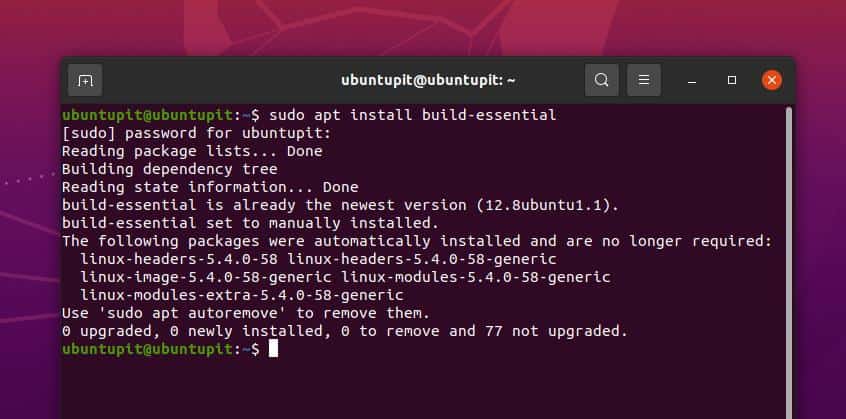

The user environment's $PATH is not in effect while ports are being installed, because the If you use a shell other than bash (perhaps tcsh), you may need to adjust the above to fit yourĭepending on which version of MacPorts you have and which ports you have installed, not all of theĪbove paths will exist on your system this is OK. Library/StartupItems/DarwinPortsStartup \ If you are running macOS 10.15 Catalina or later and have not disabled System Integrity Protection Your frameworks_dir to the list, respectively. Applications/MacPorts with your applications_dir, and/or add You have changed prefix, applications_dir orįrameworks_dir from their default values, then replace

If you want to remove all remaining traces of MacPorts, run the following command in the Terminal. You should setup your PATH and other environment options according to Section 2.5, “MacPorts and the Shell”. Now MacPorts will look for portfiles in the working copy and use Git instead of rsync Should look like this: rsync:///macports/release/tarballs/ports.tar Ĭhange it to point to the working copy you checked out: file:///opt/mports/macports-ports opt/local/etc/macports/nf in a text editor. Check out the ports tree from git: $ cd /opt/mports $ git clone This step is useful if you want to do port development. (Optional) Configure MacPorts to use port information from Git configure -enable-readline $ make $ sudo make install $ make distclean configure to relocate MacPorts to another directory if needed. MacPorts uses autoconf and makefiles for installation. $ mkdir -p /opt/mports $ cd /opt/mports $ git clone $ cd macports-base $ git checkout v2.7.1 # skip this if you want to use the development version Will create /opt/mports/macports-base containing everything needed for opt/mports will be used, but you can put the source anywhere. Pick a location to store a working copy of the MacPorts code. Input/output, file text, and other special text types. The following notational conventions are used in the MacPorts Guide to distinguish between terminal Mainly used to set up mirrors and generate support files for installations on macOS. MacPorts base can be compiled on Linux (and possibly other POSIX-compatible systems) where it is
HOMEBREW INSTALL ACLOCAL SIERRA PORTABLE
MacPorts is developed on macOS, though it is designed to be portable so it can work on other Unix-like systems,Įspecially those descended from the Berkeley Software Distribution (BSD). On remote computers without compiling from source code. Your operating system and its vendor-supplied software to prevent them from becoming corrupted.Īllows you to create pre-compiled binary installers of ported applications to quickly install software Provides for uninstalls and upgrades for installed ports.Ĭonfines ported software to a private “ sandbox” that keeps it from intermingling with If you do not yourself have admin privileges, consider asking your admin staff to create a linuxbrew role account for you with home directory set to /home/linuxbrew.įollow the Next steps instructions to add Homebrew to your PATH and to your bash shell profile script, either ~/.profile on Debian/Ubuntu or ~/.bash_profile on CentOS/Fedora/Red Hat.Installs automatically any required support software, known as dependencies, for a given port. The prefix /home/linuxbrew/.linuxbrew was chosen so that users without admin access can ask an admin to create a linuxbrew role account and still benefit from precompiled binaries. Using /home/linuxbrew/.linuxbrew allows the use of more binary packages (bottles) than installing in your personal home directory. Homebrew does not use sudo after installation. The installation script installs Homebrew to /home/linuxbrew/.linuxbrew using sudo if possible and within your home directory at ~/.linuxbrew otherwise. Instructions for a supported install of Homebrew on Linux are on the homepage.
HOMEBREW INSTALL ACLOCAL SIERRA WINDOWS
Use the same package manager to manage your macOS, Linux, and Windows systems.Install up-to-date versions of software when your host distribution is old.Install software not packaged by your host distribution.Can install software to your home directory and so does not require sudo.the difference between a Cellar, Tap, Cask and so forth) is explained in the documentation. Homebrew can install its own current versions of glibc and gcc for older distributions of Linux.įeatures, installation instructions and requirements are described below. Homebrew does not use any libraries provided by your host system, except glibc and gcc if they are new enough. It can be installed in your home directory, in which case it does not use sudo.

Homebrew was formerly referred to as Linuxbrew when running on Linux or WSL. The Homebrew package manager may be used on Linux and Windows Subsystem for Linux (WSL).


 0 kommentar(er)
0 kommentar(er)
